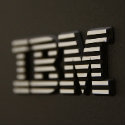Initiative aims to use blockchain to keep track of finances and logistics for import and re-export of goods and services into the busy port city.

IBM has launched a blockchain initiative with du, several Dubai government agencies and other companies to track goods going into and out of the United Arab Emirates city, which is one of the world's trading hubs.
Dubai is exploring use of blockchain for trade finance and logistics for import and re-export of goods from the United Arab Emirates city, IBM Corp. (NYSE: IBM) said in an announcement on Tuesday.
The companies will use Hyperledger Fabric and IBM Cloud to transmit shipment data carrying real-time information about the state of goods and status of the shipment, IBM says.
du is providing data from Internet of Things devices; the Emirates NBD Bank is issuing letters of credit; Banco Santander is responding to the letters of credit; Aramex is the freight forwarder; and an undisclosed airline is providing air carriage. Dubai Customs, Dubai Trade and IT provider DUTECh are also involved in the initiative.
The organizations are looking to replace paper-based contracts with smart contracts, use Watson IoT for device-reported data to update or validate smart contracts and integrate all the trade process parties from ordering, when the importer gets a letter of credit from the bank, through freight and shipping, and ending with customs and payment, IBM says.
Dubai declared its intent to become a blockchain hub in February 2016. The city plans to execute all its transactions on blockchain by 2020.
"IBM believes that blockchain will do for transactions what the Internet did for information," Amr Refaat, general manager of IBM Middle East and Pakistan, said in a statement.
Blockchain has the potential to drastically reduce inefficiencies in multi-party transactions, such as import/export. By keeping an immutable, distributed ledger of transactions, blockchain can slash middlemen now used to keep track of trades.
Also this year, IBM did a deal with the US Food and Drug Administration (FDA) to help secure patient records and other healthcare information. (See IBM, FDA Look to Blockchain to Secure Health Records.)
Related posts:
— Mitch Wagner, 
 , Editor, Light Reading Enterprise Cloud
, Editor, Light Reading Enterprise Cloud
About the Author(s)
You May Also Like











